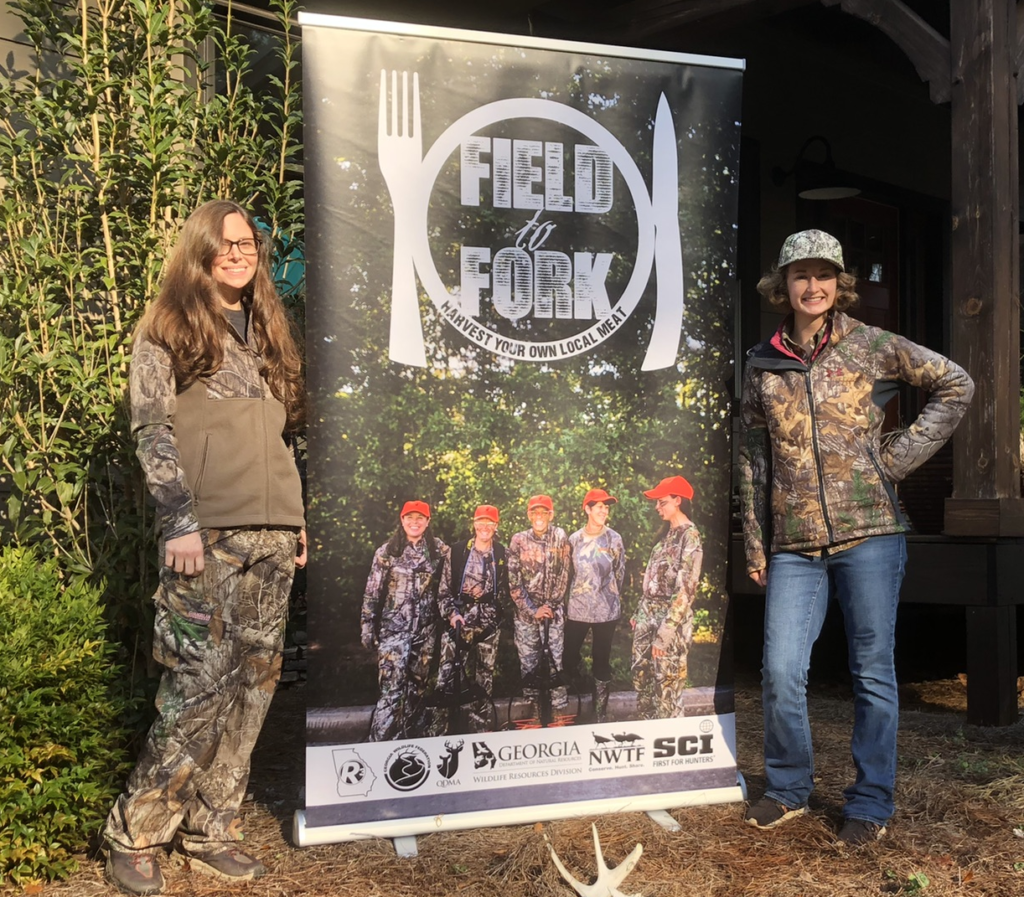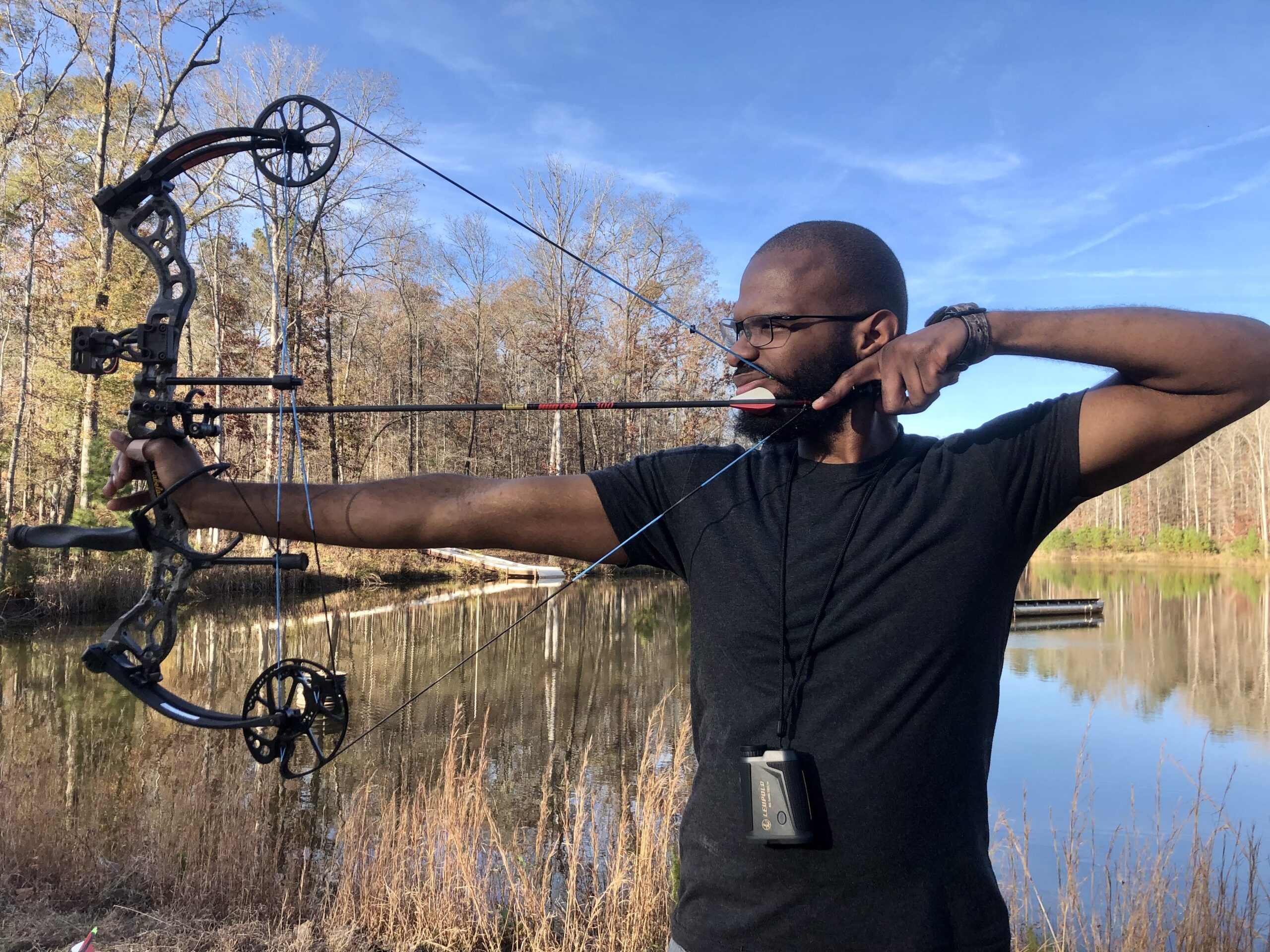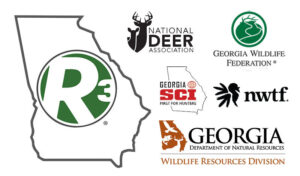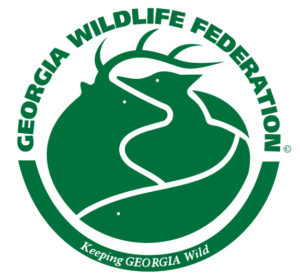By Bre Bashford, Georgia R3 Coordinator

New hunter Tasha with Coach Bre
Forsyth, GA- Participants arrived for a weekend of learning and left with inspiration and a new-found connection to the outdoors. Field to Fork participants are especially interested in hunting as a means to put high quality protein on the dinner table. This interest was highlighted at the December event, by the wild game fare that was served. Participants enjoyed rabbit, squirrel, feral hog, and their species of focus white-tailed deer. The cuts of meat were prepared in a variety of methods demonstrating the diversity and potential of wild foods.
The program was funded and supported by the Georgia R3 Initiative, which includes Georgia Wildlife Federation, Georgia Department of Natural Resources Wildlife Resources Division, National Wild Turkey Federation, National Deer Association, and Georgia Chapter of Safari Club International. Lodging, board and hunting access was provided by CAMMO Retreats Ministry.
Six out of six participants expressed gratitude for the skill development and the sense of quiet they experienced while hunting. Individuals came together from a variety of backgrounds, learned new skills, developed positive memories and now have an improved understanding of hunting and how it is related to wildlife conservation.
Greg Grimes hosted the event and says, “It’s more evident than ever we need more [adult learn to hunt programming]. The passion the new hunters showed was like nothing I’ve ever seen. It was so rewarding to help out in this way.”
Learn to Hunt programs want to generate new hunters to contribute to conservation funding, but programs also want to encourage a deepened connection to the outdoors. It’s this connection that develops into an investment towards the conservation of our wild landscapes and wildlife.
Hunters, anglers and recreational shooters fund the majority of wildlife conservation efforts through licenses, fees and equipment excise taxes. The requirement for hunting and angling licenses originated in the early 1900’s. Limiting the number of harvests through licenses funded the conservation of habitats and consequently returned hundreds of species from the brink of extinction. Unfortunately, there is a decreasing rate of participation in hunting, thus reducing the capacity of wildlife conservation. As a result, state and federal wildlife agencies and non-profit wildlife organizations are acting to recruit, retain and reactivate new participants to these activities (R3).

First time hunter Antonio
Field to Fork program participants are not pressured to shoot any animal while participating in this program. It is understood that familiarizing oneself with the relationship of life and death can be challenging. The breadth of that relationship looks different to each individual and participants shoot when they feel ready. Those who are invested in conservation of the outdoors also contribute when they vote on public policy or support non-profit conservation organizations. It’s the passion, commitment and effort to the outdoors that makes a conservationist.
Field to Fork places emphasis on the wild, organic, free-ranged food source that comes from hunting. The comradery with friends and family; the connection to the outdoors; and the contribution to conservation compound into a rich and flavorful way of life.
To learn how to hunt, email Bre Bashford for more information: Bre@gwf.org


Recent Comments